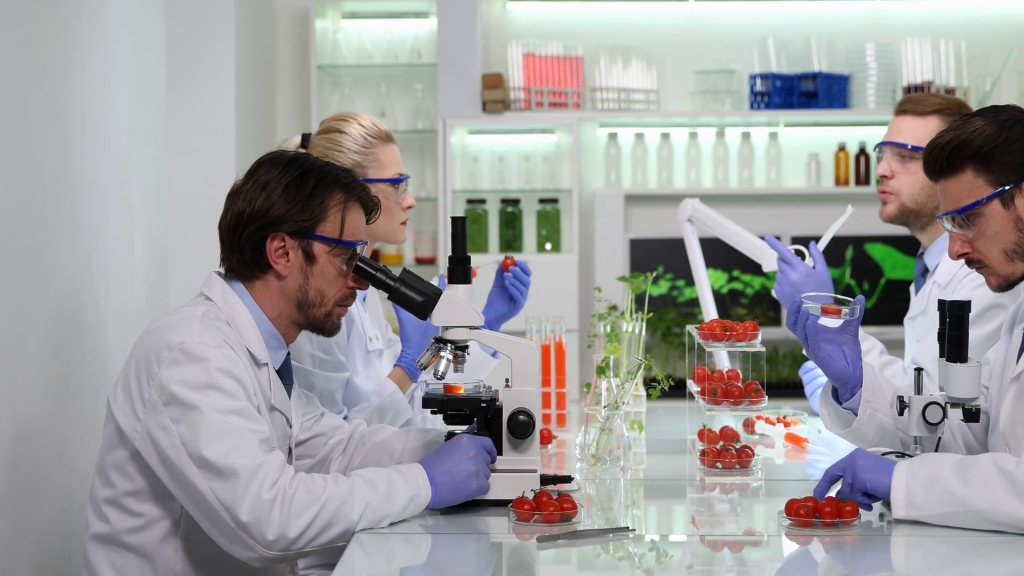Science can be defined as the intellectual and practical activity encompassing the systematic study of the structure and behaviour of the physical and natural world through observation and experiment. Science is the study of unravelling the mystery of the universe and every tiniest part of it. It is needless to say that Science is one the most interesting and satisfying streams to study. When we select a stream, you want it to be both intriguing and fun to study and we also want that the time and work that we are investing to it proves to fruitful. In simple words, it should lead us to a good career and a lucrative job. 12th Science subjects depend on the course you studied. The Science courses that are generally offered by schools are:
- PCB includes Physics, Chemistry, and Biology.
- PCM which includes Physics, Chemistry, and Mathematics
- PCMB which includes Physics, Chemistry, Mathematics and Biology
Although all the three different types of courses are overlapping, career options could vary for the three. We will discuss all the best courses to do after studying 12th Science so that you get an amazing career out of that.
Here is a general list of the best courses to do after 12th science.
Table of Contents
1. B.E or B.Tech
Bachelor in Engineering or Bachelor in Technology both means a course of engineering. Engineering is the most popular and job-oriented field after doing your 12th in Physics, Chemistry, and Mathematics. Engineering requires numeracy skills, a problem-solving capability that you get from studying PCM.
Engineering offers courses in various fields depending on your interests. But before making a decision, you must be well aware of what makes you take engineering. Engineers need to be updated on the technology of nearly all the fields which makes their job dynamic and expanding in nature. Engineering involves ongoing education and the ability to take the world one step ahead. A B.Tech degree is a good major. If you are not sure about the future, a major in B.Tech has fewer chances of disappointing you in the future.
Engineers address real-world problems. They fix things that are broken, improve those that work and come up with new inventions. Engineers help move the world toward a brighter future by solving problems with pollution, finding ways to harness new energy sources, producing new medicines, and building new structures. Engineers apply principles of ethics to try to find the best answer to a question. Engineers help people.
Now, let us see different profitable branches of engineering.
The conventional branches of Engineering are:
- Bachelor of Engineering in Computer Science: In today’s world, computer science and tech is the most sought-after stream as it provides a dream career in one of the most popular IT firms. App development, Web Development, Cyber Security, Computer Scientist, are some of the careers that can be pursued after attaining this degree.
- Bachelor of Engineering in Civil Engineering: The traditional and royal stream for those who wish to construct the future with their own hands. If done with proper dedication, this stream can earn you both fame and wealth.
- Bachelor of Engineering in Mechanical: It serves you job opportunities in both government as well as private sectors, such as the railways. Also helps to build a career in an automobile firm.
- Bachelor of Engineering in Electrical engineering: An electrical engineer is a good career option after electrical engineering for an individual who possesses strong communication, analytical, and problem-solving skills, who has the ability to work under pressure in a specific timeline, who also have organizational, leadership, and creative skills as it comes in handy.
- Bachelor of Engineering in Electronics and Telecommunication: Career ranges from being an electronics engineer to that of an IT analyst or a Software Engineer.
- B . Arch: A career in Architecture is attractive, lucrative, and has lots of potential in terms of development. The architectural degree is designed in such a way so that it fulfils the educational component of professional certifying bodies.
This field covers different works such as spatial design, safety management, aesthetics, material management, etc.

2. Honours
An honours degree requires a thesis or project work beyond that needed for the normal Bachelor’s program. Honours programs in the US are taken alongside the rest of the degree and often have a minimum GPA requirement for entry, which can vary between institutions. Some institutions do not have a separate honours program but instead refer to bachelor’s degrees awarded with Latin honours, which may be based either on GPA or class position, as honours degrees you can do B.Sc. Honours in Physics, Chemistry, or Mathematics. One should go for Honours when they are passionate about the subject.
3. Medicine
This field includes Bachelor of Medicine & Surgery (M.B.B.S), Bachelor of Dental Surgery (BDS), Ayurvedic Medicine & Surgery, Homeopathic Medicine & Surgery, Physiotherapy, Veterinary Science, and Animal Husbandry. To go to medical school, you need to appear for MCAT(Medical College Admission Test). To qualify that you would need basic knowledge in your subjects mainly chemistry and biology.

4. Nursing
Americans consider nursing to be the most honest, trusted, and ethically sound profession in the United States today, according to a recent survey. It is no wonder why. Nurses are passionate, hard-working, supportive professionals who are always ready to lend a hand. They work diligently in efforts to improve the health of others. They are highly respected by their patients and their medical teams alike.
If you want to become a registered nurse today, you must first pursue a Bachelor of Science (BSN) or Associate degree in Nursing (ADN). You must then become licensed in your state of work.
5. Microbiology
Microbiology is the study of microscopic organisms (microbes), which are defined as any living organism that is either a single cell (unicellular), a cell cluster, or has no cells at all (acellular). This includes eukaryotes, such as fungi and protists, and prokaryotes. Viruses and prions, though not strictly classed as living organisms, are also studied.
Microbiology typically includes the study of the immune system or immunology. Generally, immune systems interact with pathogenic microbes; these two disciplines often intersect.
6. Biochemistry or Molecular Biology
At its most basic, Biochemistry is the study of the chemical processes occurring in living matter. However, this simple definition encompasses an incredibly diverse field of research that touches nearly all aspects of our lives. Perhaps the most obvious application of biochemistry in our everyday existence is in the field of health research. Biochemistry has been a key to our growing understanding of a myriad of health issues; from diabetes to arteriosclerosis to cancer. The tools of biochemists have identified the gene, protein, and pathway disruptions that lead to disease and, in many cases, point us to preventions, treatments, or cures. From aspirin to interleukins, the treatment of human disease relies heavily on biochemistry. Jobs directly related to a Biochemistry degree include Research, Analytical chemist, Biomedical scientist, Pharma Associate, QA / AC Associate, Healthcare scientist, Clinical biochemistry, Food Safety Analyst, Clinical research associate, Forensic scientist, Scientific laboratory technician, Toxicologist, and lecturer.

7. Biomedicine
Biomedical Science (Biomedicine) is the field of study that focuses on the areas of biology and chemistry that are relevant to healthcare. The discipline is very wide-ranging, and there are three general areas of speciality life sciences, physiological sciences, and bioengineering. Careers in Biomedical Science are mostly research- and lab-based, with the aim to improve and advance medical knowledge. As a biomedical scientist, you could be growing embryos for IVF, 3D-printing a heart, or finding a new medicine to fight cancer. Biomedicine is the field where biology, chemistry, and changing the world meet in the near future. The courses are available in the top universities including 4 years of B.Tech programs or 5 years of integrated B.Tech and M.Tech programs.
8. Bioinformatics
Bioinformatics is the application of information technology to the study of living things, usually at the molecular level. Bioinformatics involves the use of computers to collect, organize and use biological information to answer questions in fields like evolutionary biology. There are several undergraduate courses such as Bachelor of Science (B.Sc.) in Bioinformatics, Bachelor of Technology (B. Tech) in Bioinformatics, Bachelor in Science – Honours (B.Sc. Hons) in Bioinformatics, Bachelor of Engineering (B.E) in Bioinformatics, Certificate in Bioinformatics, Advanced Diploma in Bioinformatics.
9. Food Technology
Food technology is the application of food science to the selection, preservation, processing, packaging, distribution, and use of safe food.
BSc (Bachelor in Science) Food Technology course includes several topics as food processing, emerging technologies, and food additives which are discussed at an undergraduate level. Food Technology subjects teach the students the principles of food chemistry, microbiology, and various commercial practices of quality control. The job opportunities in this field help the aspirants gain experience with the different machines and equipment used in the food industry. These machines include pulverizers, extruders, and processing plants. Companies need to make products that are not just profitable but also healthy for the consumers. Several manufacturing companies spend millions in research and development, and therefore it has a large marketplace. This makes the course highly employable.

10. Agriculture
Agriculture is both the theoretical study and practical application of farming, such as the cultivation of cereals.
Since the Bronze Age development of the Fertile Crescent in the Middle East birthed modern civilization, agricultural advances have come to define human progress.
Following inventions and innovations ranging from the seed drill to fertilizing crops by drone, the past few centuries have seen farming become a science.
However, there remain huge opportunities for research and development in the agricultural sector, which to this day is one of the largest employers worldwide. Careers can be forged in both the ongoing schemes to eradicate food poverty through education of self-sufficient farming methods and soil sciences, and in the groundbreaking developments of genetically modified (GMO) crops – or even synthetically manufactured meat. There are several undergraduate courses available on agriculture including BSc. (Bachelor in Science), B. Tech (Bachelor in Technology), and even B.A. (Bachelor in Arts) and diploma courses are offered by the top-notch school.